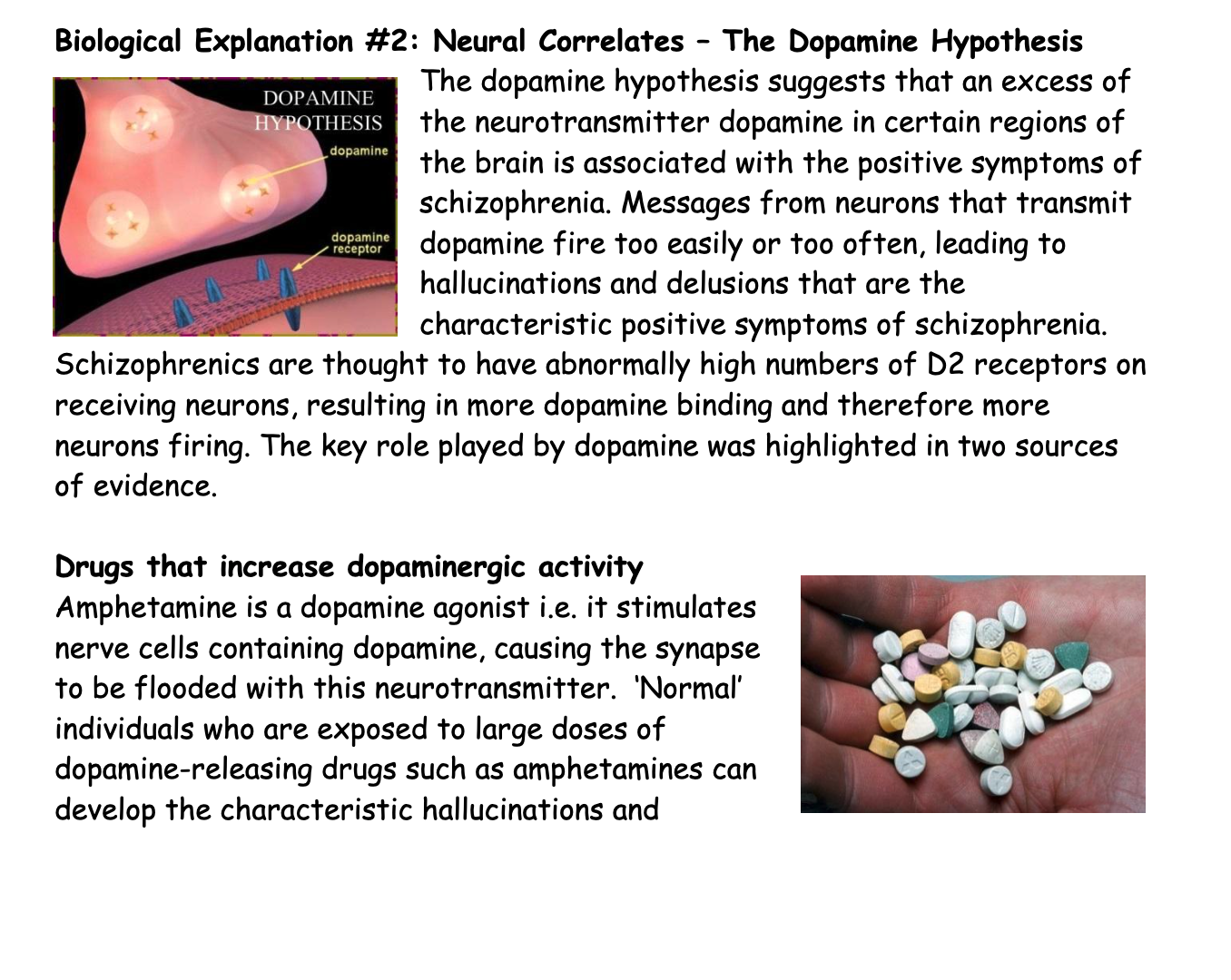What is the dopamine hypothesis and how does it relate to schizophrenia and dopamine activity?

Understand the Problem
The question is asking for an explanation of the dopamine hypothesis and its relation to schizophrenia. It requests information on how dopamine activity is connected to the symptoms of schizophrenia and the effects of certain drugs that influence dopamine levels.
Answer
The dopamine hypothesis links excess dopamine activity in the brain to the positive symptoms of schizophrenia.
The dopamine hypothesis of schizophrenia posits that an excess of dopamine activity in certain brain regions, particularly the mesolimbic pathway, is associated with the positive symptoms of schizophrenia such as hallucinations and delusions.
Answer for screen readers
The dopamine hypothesis of schizophrenia posits that an excess of dopamine activity in certain brain regions, particularly the mesolimbic pathway, is associated with the positive symptoms of schizophrenia such as hallucinations and delusions.
More Information
The dopamine hypothesis of schizophrenia also highlights the role of dopamine receptor D2; a higher number of these receptors is thought to contribute to the increased dopamine activity.
Tips
A common mistake is to assume that increased dopamine activity solely causes schizophrenia. The hypothesis primarily relates to positive symptoms, not the disorder as a whole.
Sources
- Dopamine Hypothesis of Schizophrenia - ScienceDirect.com - sciencedirect.com
- The Role of Dopamine in Schizophrenia from a Neurobiological and ... - ncbi.nlm.nih.gov
- Schizophrenia and Dopamine: Links and Connections - Healthline - healthline.com
AI-generated content may contain errors. Please verify critical information